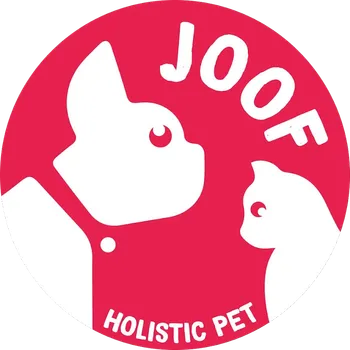Dr Judy Morgan's - Why Practice Holistic Medicine
I began my foray into holistic medicine by learning chiropractic care for animals. But, after a few years of using chiropractic treatments on my patients, I was ready to move on to other areas and learn new therapies. I focused on Traditional Chinese Medicine, where I use things like the characteristics of the feel of the pulses, and the colors and coatings of the tongue to make a diagnosis. Areas of warmth or cold in the body, the animal’s personality, the season of the year, and the pet’s diet all play into the diagnosis. I am also fascinated by how every disease can be correlated to a season, a personality, and the diet eaten.
Once I started treating more patients with alternative methods, I started seeing the problems associated with over-vaccination of pets. I started discouraging my clients from vaccinating every year. Now I recommend against using topical flea and tick preventatives and heartworm preventative medications year round, since I live in an area where fleas and mosquitoes disappear during our long cold winters. It no longer makes sense to me to apply chemicals to our pets every month. There are many natural alternatives available that are much safer.
I no longer recommend prescription diets which are made with poor quality ingredients when I know I can make the pet healthier with an alternative raw or home cooked diet using whole foods. Unfortunately, those vaccinations, parasite preventatives, and prescription diet products provide a huge revenue stream to veterinary practices, so many traditional veterinarians insist on annual vaccinations and year round parasite treatment.
Even though my focus has become more about holistic medicine, traditional medicine has continued to play a huge role in the treatment of my patients. I never want them to be in pain, and if a traditional medication needs to be part of their therapy plan while we are working on natural healing, I won’t deny them the medication. Traditional medicine and surgery saves many lives. By integrating the best of both worlds, Eastern and Western, I have more tools available in my toolbox to help the animals I love.

The Integrative Approach
At my practices, I integrate traditional and alternative therapies, in an effort to find the right balance for each patient. No two patients are the same, hence their illnesses and symptoms are never the same. No cookbook treatments can be used. Sometimes it takes perseverance to find the right combination of therapies to solve the problem. Most clients that seek out alternative therapies understand that it takes time for the body to heal itself, especially after years of poor diet, over-vaccination, and over- medication.
When it comes to diet, one of the benefits of home prepared diets is the interaction between the pet and their owner. Taking time to plan a diet and put together variations helps clients bond with their pets. Watching the reaction to a home prepared meal instead of dry kibble in a bowl is priceless. Taking the time to play with pets in the yard or going for a walk around the neighborhood is great exercise for everyone involved. Leaving work a little early because your pet has been home alone all day is good for both of you. Animals, like people, are social creatures.
It’s a balancing act to find the right treatments that work for both the pets and their owners. I love watching the transformation of the pets and their owners when we find the right balance and see improvement in their lives.
Core Philosophy
The integrative approach combines the use of traditional veterinary medicine with complementary therapies. It involves minimizing the overuse and misuse of conventional medications. Integrating therapies like chiropractic, acupuncture, physical therapy, cold laser, nutritional therapy, and Chinese or Western herbal therapies may allow the use of far fewer traditional medications.
- Proper Diet - First and foremost, feeding the proper diet is the foundation upon which any integrative pet care program begins. Simply put, your pet IS what he or she eats. Minimizing harmful byproducts and chemicals is essential. You need to become a label reader. Know which ingredients are good and which are bad. Whether you are feeding commercial, home cooked, or a raw diet, whole, fresh, organic food ingredients are best. If a food is suitable for human consumption and is something you would consider part of a healthy diet, your pet can probably share with you. You should avoid grapes, raisins, chocolate, macadamia nuts, and onions, as these can be toxic. If something qualifies as junk food for people it will also qualify as junk food for pets (think chips, pretzels, candy). Each pet is different and there is no “one size fits all” diet that I can recommend across the board.
- Minimize Vaccines - The second step in working toward a more holistic treatment plan for your pet is to minimize vaccinations. In the past, the veterinary community has advocated annual vaccinations for dogs and cats for common diseases like Distemper, Parvovirus, Leptospirosis, and Lyme disease. More recently, research has shown that immunity from vaccination may last years, so veterinarians have backed off and most now recommend vaccinating less often. Vaccinations do not give instant protection from disease. The injection contains small amounts of the virus or bacteria which are killed or modified to prevent the injection from causing disease. The animal’s body recognizes the components of the disease and builds an immune response against the disease. Unfortunately, when the body is constantly bombarded with disease particles, the immune system can go into hyper-drive, causing an overzealous response. This overzealous response can cause the immune system to react against the cells of the body.
- Minimize Medications
Chronic use of medications can degrade the body’s ability to recognize disease-causing organisms. The liver and kidneys are the filtration system for the body, constantly weeding out toxic substances. While medications may help treat one symptom or disease, they may cause other symptoms or set up a cascade of events that may eventually result in the demise of the individual.

